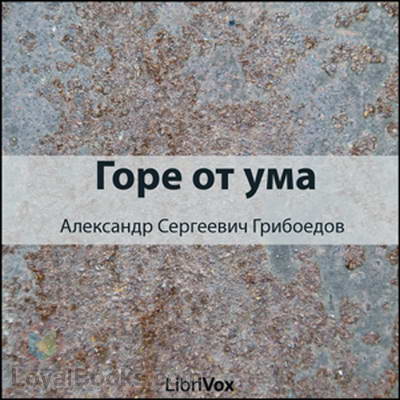
By: Alexander Sergeyevich Griboedov - Грибое́дов, Алекса́ндр Серге́евич (1795-1829)
Alexander Sergeyevich Griboedov's comedic masterpiece, "Woe from Wit," offers a scathing critique of Russian society in the early 19th century. The play follows the protagonist, Chatsky, a cynical and outspoken man who returns to Moscow only to find himself surrounded by hypocrisy and superficiality. Griboedov skillfully weaves together witty dialogue, clever wordplay, and biting satire to expose the absurdities of high society and the meaningless conventions that govern it.
Throughout the play, Griboedov explores themes of love, marriage, and social class, offering a sharp commentary on the foolishness of those who conform to societal norms without questioning their validity. Chatsky's sharp wit and cutting remarks serve as a voice of reason in a world consumed by vanity and deceit.
Despite the play's satirical nature, Griboedov also delves into deeper themes of morality and self-awareness, ultimately challenging the audience to reflect on their own actions and beliefs. The characters are flawed and complex, each grappling with their own desires and motivations in a society that values appearance over substance.
Overall, "Woe from Wit" is a timeless classic that continues to resonate with audiences today. Griboedov's sharp observations and witty dialogue make this play a compelling and thought-provoking read, offering a powerful commentary on human nature and the follies of society. Book Description:
Woe from Wit (Russian: Горе от ума, also translated as "The Woes of Wit", "Wit Works Woe" and so forth) is Alexander Griboyedov's comedy in verse, satirizing the society of post-Napoleonic Moscow, or, as a high official in the play styled it, "a pasquinade on Moscow."
The play, written in 1823 in the countryside and in Tiflis, was not passed by the censorship for the stage, and only portions of it were allowed to appear in an almanac for 1825. But it was read out by the author to "all Moscow" and to "all Petersburg" and circulated in innumerable copies, so it was as good as published in 1825; it was not, however, actually published until 1833, after the author's death, with significant cuts, and was not published in full until 1861.
The play was a compulsory work in Russian literature lessons in Soviet schools, and is still considered a golden classic in modern Russia and other Russian-speaking countries.
The play gave rise to numerous catch phrases in the Russian language, including the title itself. Many of them sound rather comic today because of their somewhat archaic language. (Introduction by Wikipedia)
|